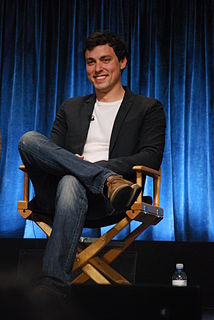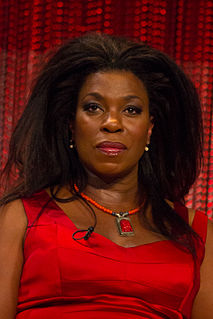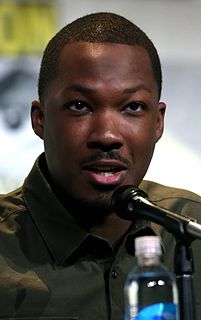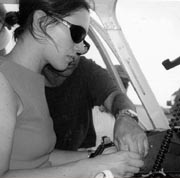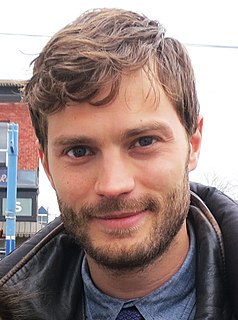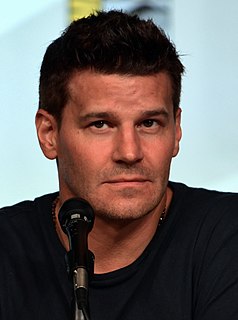A Quote by Tamlyn Tomita
What I had found after the success of Karate Kid II is that an actor basically needs to - a primary requirement on my part as how I view as actor is you have to create a background, you have to create a history of that character and place her into the script that you're reading and carry on forward because you don't know how the future unfolds. This is what storytelling is you place a certain set of circumstances with a certain set of characters and you see what unfolds after an event happens.
Related Quotes
I think at some level, it's just alchemy that we, as writers, can't explain when we write the characters. I don't set out to create the characters - they're not, to me, collections of quirks that I can put together. I discover the characters, instead. I usually go through a standard set of interview questions with the character in the beginning and ask the vital stuff: What's important to you? What do you love? Hate? Fear? .. and then I know where to start. But the characters just grow on their own, at a certain point. And start surprising me.
When you go for something because you're curious about it, you get psyched up about the chance of getting into it. It's like an actor meets a role, and you slip into that body and see what happens, to experience certain conditions, to adopt a certain character. Even shooting is a study of the character. I think both the character and the actor, and eventually the filmmaker - myself - are finding a way to accept their environment and being accepted and feel comfortable of themselves.
Years after I'd seen him for the last time I found myself thinking of him unexpectedly and often. You know how certain places grow powerful in the mind with passing time. In those early morning dreams when I come back to bed after a sleepy pee and fall quickly into the narrow end of the night, there is one set of streets I keep returning to, one dim mist of railroad rooms and certain figures reappear, borderline ghosts.
With the films, it starts off with certain coordinates in the world and seeing what happens. What happens if you place yourself at an oil refinery in the Middle East? What happens if you place yourself in the White House Cabinet Room? What happens if you place yourself with Brad Pitt on the set of a film? And so on. And no matter what I capture, there is a sense of déjà vu to it, like you might have come across this visual before.
You're in a very nice position as an actor when you're portraying a piece of history that actually happened and portraying characters that actually existed. There's so much more to draw on and your research as an actor becomes much easier than if it's some fiction that you're trying to create a world around and background and history.
As an actor playing a character, you look for all of those avenues to see if there's any sense of vulnerability or love that you can bring to a character, and decide how that's portrayed and how that's going to be a struggle with the other characters. It's your job to take that on and challenge yourself, and meet that head on and see what happens with it.
I'll wait to see what the film [The Lobster] is, but it's set in a contemporary world, in America, there are hospitals and diners, parks, things that we will recognize and experienced ourselves but yet there's this similar kind of uneasiness through all the interactions and all the things that take place. It was unnerving reading the script. I kind of felt nauseous after reading it.
Lesson number one: opportunity can be manufactured. Yes, you can wait around for the right set of circumstances to fall into place and then leap into action but you can also create those set of circumstances on your own. In so doing, you manufacture your own opportunities. This has helped me immeasurably.


